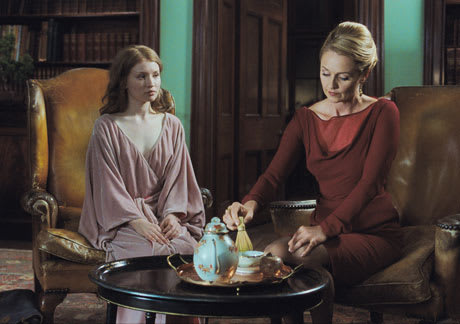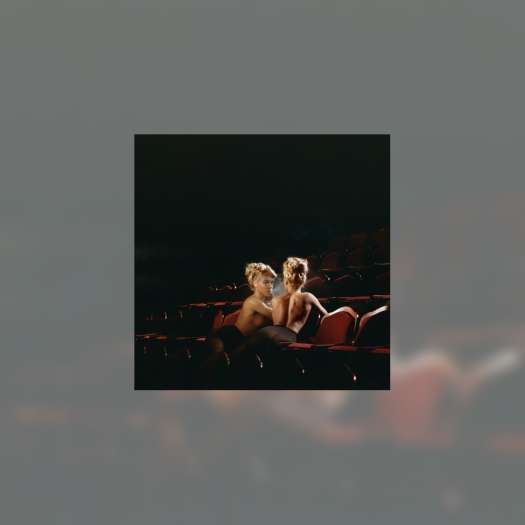Seemingly, Sleeping Beauty is a snarky female response to the laughably sexist and superficial male identity anxiety parable House of the Sleeping Beauties, which was technically based on Yasunari Kawabata's novella, Nemureru Bijo.
Where the German film and novella focus on a man obsessed with the many interchangeable, drugged and unconscious nude girls he sleeps next to (without penetrating) nightly at a brothel, Julia Leigh's take on the subject focuses on the experience of one of the young women involved, formally dissecting femininity as a passive, degrading object of male propriety.
Lucy (Emily Browning) works a variety of jobs, acting as a lab rat for medical students, waitressing, doing routine office work and occasionally whoring herself at a local bar. Her dalliance as a "sleeping beauty," laying unconscious for old rich men rightfully fearful of her consciousness and reaction to their desiccation, comes as a promotion of sorts from serving dinner in lingerie to the upper crust.
With an exceedingly cold veneer — using stationary camera shots and unenthused verbal exchanges — this defeatist look at gender inequity posits Lucy as resigned to modes of survival and expectation rather than someone keen on opportunity. She works the many jobs, objectifying herself without victimization, while occasionally doling out quiet sarcasm — putting on hot pink lip-gloss when asked to match her lipstick to her labia — uninterested in the male enterprise of money.
And, in missing the point, it can be frustrating to watch a character listlessly roam through life without any seeming ambition. But this annoyance is, in part, the point of this exercise in assessing modern cultural imbalances.
Our titular sleeping beauty is a prize object for the highest bidder, best seen unconscious without the ability to open her mouth or have any sort of contradicting personality.
(eOne)Where the German film and novella focus on a man obsessed with the many interchangeable, drugged and unconscious nude girls he sleeps next to (without penetrating) nightly at a brothel, Julia Leigh's take on the subject focuses on the experience of one of the young women involved, formally dissecting femininity as a passive, degrading object of male propriety.
Lucy (Emily Browning) works a variety of jobs, acting as a lab rat for medical students, waitressing, doing routine office work and occasionally whoring herself at a local bar. Her dalliance as a "sleeping beauty," laying unconscious for old rich men rightfully fearful of her consciousness and reaction to their desiccation, comes as a promotion of sorts from serving dinner in lingerie to the upper crust.
With an exceedingly cold veneer — using stationary camera shots and unenthused verbal exchanges — this defeatist look at gender inequity posits Lucy as resigned to modes of survival and expectation rather than someone keen on opportunity. She works the many jobs, objectifying herself without victimization, while occasionally doling out quiet sarcasm — putting on hot pink lip-gloss when asked to match her lipstick to her labia — uninterested in the male enterprise of money.
And, in missing the point, it can be frustrating to watch a character listlessly roam through life without any seeming ambition. But this annoyance is, in part, the point of this exercise in assessing modern cultural imbalances.
Our titular sleeping beauty is a prize object for the highest bidder, best seen unconscious without the ability to open her mouth or have any sort of contradicting personality.




